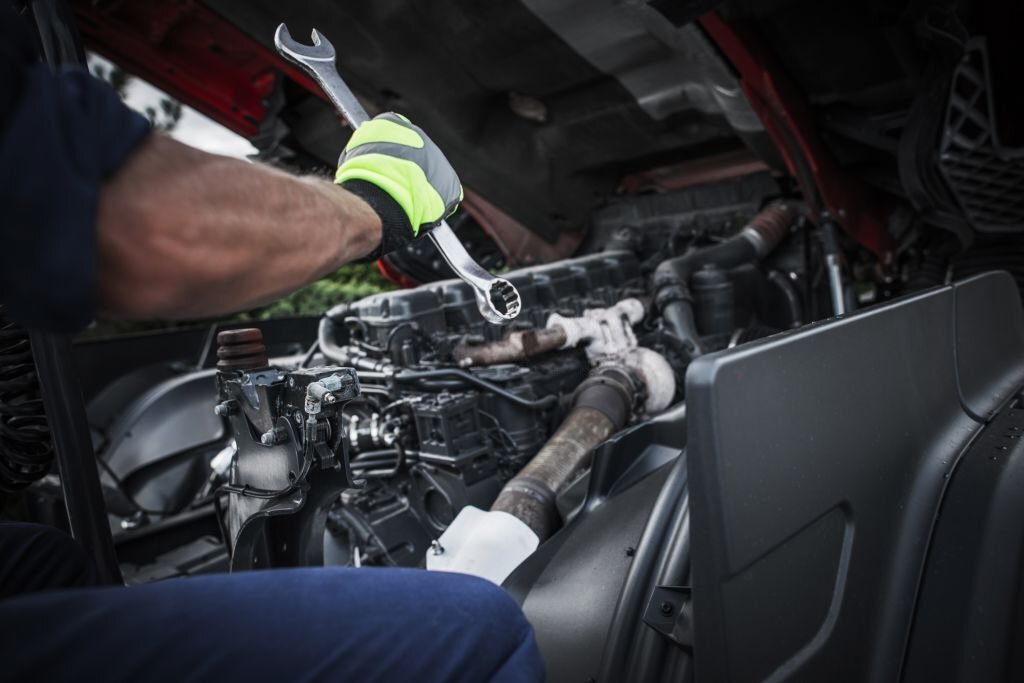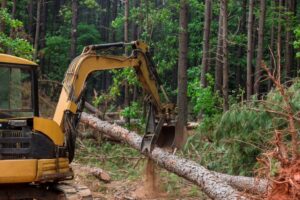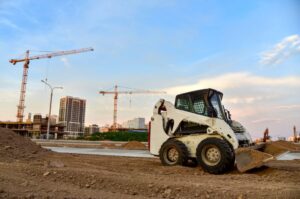
Graders, also known as motor graders, are critical heavy equipment used in construction and earthmoving projects. To ensure optimal performance, longevity, and safe operation, it is crucial to adhere to proper maintenance practices for graders. In this comprehensive article, we will explore the essential maintenance requirements for graders, covering routine inspections, lubrication, engine care, hydraulic system maintenance, and more. By understanding and implementing these maintenance practices, construction, and earthmoving professionals can maximize the efficiency and reliability of their graders, ultimately contributing to the success of their projects.
1. Routine Inspections and Checks
Routine inspections are fundamental to identify any potential issues and ensure that the grader is in optimal working condition:
Daily Pre-Start Inspection
Before operating the grader, conduct a pre-start inspection to check the following:
- Fluid Levels: Ensure that engine oil, hydraulic fluid, coolant, and fuel levels are within the recommended range.
- Tire Condition: Inspect the tires for wear, damage, and proper inflation.
- Belts and Hoses: Check for signs of wear, cracks, or leaks in belts and hoses.
- Lights and Signals: Verify that all lights and signals are functioning correctly.
Regular Maintenance Schedule
Follow a regular maintenance schedule that includes more comprehensive inspections and checks at specified intervals. This may include weekly, monthly, or yearly inspections.
2. Lubrication and Greasing
Proper lubrication is vital to maintain the efficiency and longevity of moving parts in the grader:
Grease Points
Identify all the grease points on the grader, including joints, pivot points, and bearings.
Lubrication Schedule
Follow the manufacturer’s recommended lubrication schedule to ensure all components receive the appropriate amount of grease.
Quality of Grease
Use high-quality lubricants and greases suitable for specific components and environmental conditions.
3. Engine Care and Maintenance
The engine is the heart of the grader, and proper engine care is essential for optimal performance:
Air Filter Maintenance
Regularly inspect and clean or replace the air filter to prevent dust and debris from entering the engine.
Oil Changes
Follow the recommended oil change intervals and use the correct type and grade of engine oil.
Cooling System
Maintain the cooling system, including checking coolant levels and the condition of the hoses and the radiator.
Exhaust System
Inspect the exhaust system for leaks and damage, and ensure that the exhaust gases are properly vented.
4. Hydraulic System Maintenance
The hydraulic system is critical for the operation of graders, and proper maintenance is essential:
Hydraulic Fluid Checks
Monitor the hydraulic fluid levels regularly and ensure that they are within the specified range.
Hydraulic Hose Inspection
Inspect hydraulic hoses for signs of wear, damage, or leaks, and replace any damaged hoses promptly.
Filter Replacement
Follow the manufacturer’s recommended schedule for replacing hydraulic filters to keep the system clean and efficient.
5. Blade Maintenance and Adjustment
The grader’s blade is a crucial component for precise grading and leveling:
Blade Inspection
Regularly inspect the grader’s blade for wear, damage, or misalignment.
Blade Adjustment
Ensure that the blade is correctly adjusted to achieve the desired grade and slope.
Edge Maintenance
Keep the blade’s cutting edge sharp to maintain optimal cutting and leveling performance.
6. Tire Care and Replacement
Tires are a critical component for the grader’s traction and stability:
Tire Pressure
Regularly check and maintain the proper tire pressure to ensure optimal performance and minimize tire wear.
Tire Rotation
Follow a regular tire rotation schedule to distribute wear evenly across all tires.
Tire Replacement
Replace tires when they reach the end of their service life or show signs of significant wear or damage.
7. Electrical System Maintenance
The grader’s electrical system requires proper maintenance for reliable operation:
Battery Care
Inspect the battery regularly for corrosion and ensure that connections are clean and tight.
Electrical Component Checks
Check all electrical components, such as lights and signals, for proper functioning.
Wiring Inspection
Inspect the wiring for any signs of damage or wear, and repair or replace as needed.
8. Safety Equipment Inspection
Graders are equipped with various safety features and equipment:
Operator Seatbelt
Ensure that the operator’s seatbelt is in good condition and functioning properly.
Safety Signals
Check safety signals, alarms, and warning lights to ensure they are working correctly.
Backup Alarm
Verify that the backup alarm is functioning as it provides an important safety warning to nearby workers.
9. Record Keeping and Documentation
Maintain detailed records of all maintenance activities and inspections:
Maintenance Logs
Keep comprehensive maintenance logs, including dates, details of maintenance performed, and any issues discovered.
Service Manuals
Keep service manuals and technical documentation readily available for reference.
Conclusion
Adhering to proper maintenance requirements is crucial for the optimal performance, longevity, and safe operation of graders. Regular inspections, lubrication, engine care, hydraulic system maintenance, and other essential practices ensure that graders remain efficient and reliable in heavy equipment in construction and earthmoving projects. By following manufacturer recommendations and implementing a comprehensive maintenance schedule, construction professionals can confidently rely on their graders to achieve precise grading and leveling, contributing to the success and efficiency of their projects. Proper maintenance not only enhances the grader’s performance but also minimizes downtime and repair costs, making it a critical aspect of responsible and effective grader operation.



